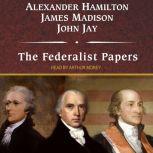

Others suggest, however, that human beings are degraded, terrible, and should therefore not be afforded any rights, but to be placed in the hands of one authoritarian. If these are the wisest and greatest thinkers among us, there is no need for a system of checks and balances. Some suggest that those who govern us are of high mind and sound character-the bureaucrats, if you will. If angels were to govern men, neither external nor internal controls on government would be necessary.” Madison encapsulates the single most important expression of the American constitutional system ever written. Madison writes in Federalist 51, “But what is government itself, but the greatest of all reflections on human nature? If men were angels, no government would be necessary. While compiled by three different men (some of whom bitterly disagreed with each other), what’s perhaps most interesting about the Federalist Papers is that each essay is written under one pen name: Publius, one of the first two consuls of the Roman Republic known as “the friend of the people.” Madison, Hamilton, and Jay are contributing to a work of political philosophy, as well as sheer pragmatism.

The Federalist Papers is in regards, then, solely to the structural constitution. The American tendency to focus solely on the Bill of Rights obscures what was seen to be the chief protection of the people’s liberties: the structure of the American government. After all, a Bill of Rights expressed that the government could very well act beyond its certain powers, so long as they are not enumerated in the Bill of Rights therefore, the Tenth Amendment states that “the powers not delegated to the United States by the Constitution, nor prohibited by it to the States, are reserved to the States respectively, or to the people.” Very much opposed to The Bill of Rights, Federalists like Hamilton and Madison feared that issues of certain enumerated liberties would seize the public attention, rather than the ways in which factions of government may interact in order to best prevent usurpations of public power. In reality, the presence of a Bill of Rights was pretty controversial, at the time. Most Americans today may assume that the Bill of Rights was at the forefront of the Framers’ minds when drafting the Constitution although, the first ten amendments are listed as amendments for a reason.

Although the Federalist Papers explain the American constitutional system, not one of the eighty-five essays outlines the creation of the Bill of Rights.


 0 kommentar(er)
0 kommentar(er)
